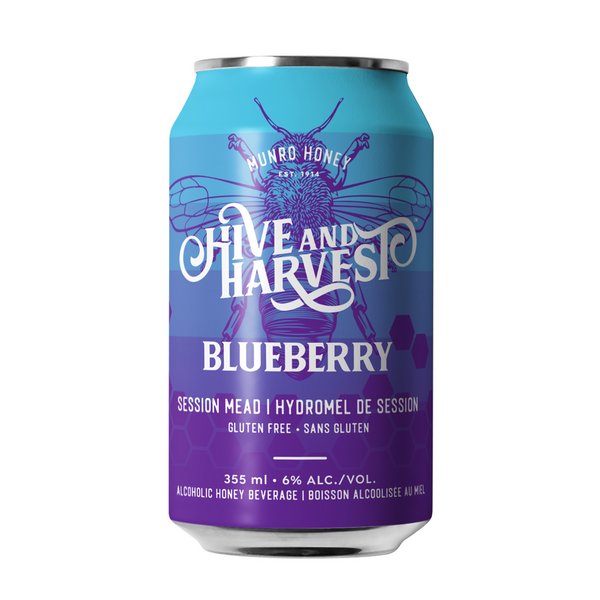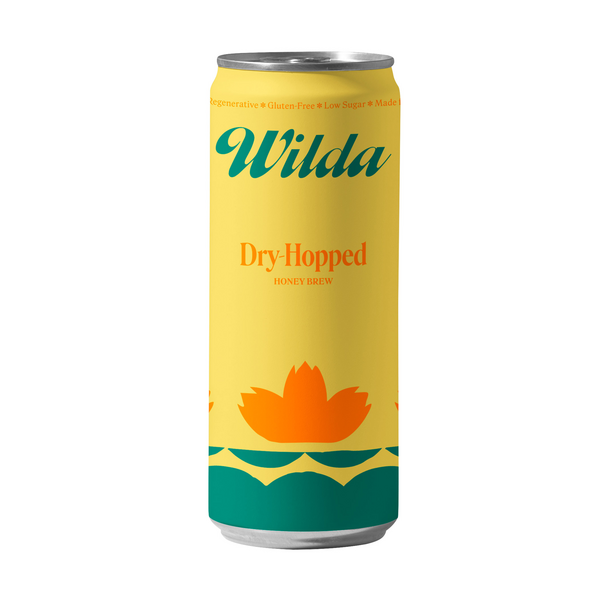-
 56.3 Million bottles delivered
56.3 Million bottles delivered
-
 30% Savings vs our competitors
30% Savings vs our competitors
-
 100% Canadian
100% Canadian
 56.3 Million bottles delivered
56.3 Million bottles delivered
 30% Savings vs our competitors
30% Savings vs our competitors
 100% Canadian
100% Canadian
- Alcohol Delivery
-
Beer
- All Beer
- Ale
- Show All
- Altbier
- Amber
- American IPA
- American Pale
- Belgian
- Belgian Strong
- Blonde
- Brown
- Cream
- Dark
- Double IPA
- Draught
- Dry
- English Bitter Ale
- English Pale Ale
- Flavoured & Spiced
- Fruit
- Golden
- Hazy DIPA
- Hazy IPA
- Honey
- Imperial IPA
- IPA
- Lagered
- Light
- New England IPA
- Other
- Pale
- Pilsner
- Red
- Red Ipa
- Saison
- Session IPA
- Sour
- Stout
- Stout & Porter
- Stout & Porter
- Strong
- Triple IPA
- West Coast IPA
- Wheat
- Wheat & Rye
- White IPA
- Cider
- Gifts and Samplers
- IPA
- Lager
- Light
- Malt
- Mixed Case
- Non-Alcoholic & Specialty
- Other
- Pale
- Porter
- Radler/Shandy
- Seltzer
- Specialty
- Specialty Beer
- Stout
- Beer Delivery Cities
-
Wine
- All Wine
- Champagne
- Fortified Wine
- Gifts and Samplers
- Icewine
- Red Wine
- Show All
- Agiorgitiko
- Agiorgitiko(St.George)
- Agiorgitiko/Cabernet Sauvignon
- Aglianico
- Alentejo
- Alicante
- Alicante Blend
- Amarone
- Aragonés Blend
- Arinto Blend
- Baco Noir
- Barbaresco
- Barbera
- Bardolino/Valpolicella
- Barolo
- Beaujolais
- Blaufränkisch
- Blend
- Blend - Cabernet
- Blend - Meritage
- Blend - Other
- Blended Table Red
- Bobal
- Bonarda
- Bordeaux
- Bordeaux Red
- Brachetto
- Brunello
- Burgundy
- Cabernet Franc
- Cabernet Franc Blend
- Cabernet Franc/Cabernet Sauvignon
- Cabernet Franc/Merlot
- Cabernet Merlot
- Cabernet Sauvignon
- Cabernet Sauvignon Blend
- Cabernet Sauvignon/Agiorgitiko
- Cabernet Sauvignon/Cabernet Franc
- Cabernet Sauvignon/Cabernet Franc/Petit Verdot
- Cabernet Sauvignon/Malbec
- Cabernet Sauvignon/Merlot
- Cabernet Sauvignon/Merlot/Cabernet Franc
- Cabernet Sauvignon/Petit Verdot
- Cabernet Sauvignon/Sangiovese
- Cabernet Sauvignon/Shiraz
- Cabernet Sauvignon/Shiraz/Merlot
- Cabernet Sauvignon/Sumoll
- Cabernet Sauvignon/Syrah
- Cabernet Sauvignon/Syrah/Carmenère
- Cabernet Shiraz Merlot
- Cabernet/Merlot
- Cannonau (Grenache)
- Carignan
- Carignan Blend
- Carignan/Grenache
- Carignan/Grenache/Syrah
- Carmenère
- Carmenère Blend
- Carmenère/Syrah
- Castelão Blend
- Catarratto
- Chardonnay Blend
- Châteauneuf-du-Pape
- Chianti
- Cinsault
- Clarete
- Corvina Blend
- Corvina/Raboso/Refosco
- Corvina/Rondinella
- Corvina/Rondinella/Molinara
- Corvina/Rondinella/Sangiovese
- DAO
- Dolcetto
- Douro
- Durif
- Feteasca Neagra
- Frappato
- Gamay
- Garnacha
- Graciano
- Grenache
- Grenache Blend
- Grenache Noir Blend
- Grenache/Carignan
- Grenache/Mourvèdre
- Grenache/Shiraz
- Grenache/Shiraz/Zinfandel
- Grenache/Syrah
- Grenache/Syrah/Carignan
- Grenache/Syrah/Mourvèdre
- Grenache/Tempranillo
- Kadarka
- Kékfrankos
- Lambrusco
- Limniona
- Limniona Blend
- Maceratino
- Madeira
- Malbec
- Malbec Blend
- Malbec/Cabernet Franc
- Malbec/Cabernet Sauvignon
- Malbec/Merlot
- Malvasia
- Maréchal Foch
- Mavrodaphne
- Mavrotragano
- Mencia
- Meritage
- Merlot
- Merlot Blend
- Merlot/Cabernet Franc
- Merlot/Cabernet Sauvignon
- Merlot/Cabernet Sauvignon/Cabernet Franc
- Merlot/Malbec
- Merlot/Sangiovese
- Monastrell (Mourvèdre)
- Monastrell (Mourvèdre) Blend
- Montepulciano
- Montepulciano/Sangiovese
- Mourvèdre
- Mourvèdre Blend
- Mourvèdre/Syrah/Grenache Noir
- Muscadet
- Muscatini
- Named Varietal Blends-Red
- Nebbiolo
- Nebbiolo Blend
- Nebbiolo/Barbera
- Negrette
- Negro Amaro
- Negroamaro
- Nerello Mascalese
- Nerello Mascalese Blend
- Nero D'Avola/Syrah
- Nero d'Avola
- Nero d'Avola Blend
- Nero di Troia
- Other
- Other Red Varietal (Single)
- País
- Passerina
- Perricone
- Petit Verdot
- Petit Verdot/Cabernet Sauvignon
- Petite Sirah
- Petite Sirah Blend
- Piedirosso/Aglianico
- Pinot Noir
- Pinot Noir Blend
- Pinot Noir/Gamay
- Pinotage
- Plavac Mali
- Primitivo
- Primitivo Blend
- Primitivo/Negroamaro
- Pugnitello Blend
- Red - Full Bodied
- Red - Light Fruity
- Red - Medium Bodied
- Red - Sweet
- Red Blend
- Red Table Wines (Unnamed Blends)
- Refosco
- Refosco dal Peduncolo Rosso
- Regional Blended Red
- Rhône
- Rioja
- Ripasso
- Rubicon IGP
- Sagrantino
- Sangiovese
- Sangiovese Blend
- Sangiovese/Cabernet Sauvignon
- Sangiovese/Cabernet Sauvignon/Merlot
- Sangiovese/Canaiolo
- Sangiovese/Merlot
- Saperavi
- Schwarzriesling
- Sciaccarello
- Shiraz Blend
- Shiraz/Cabernet
- Shiraz/Cabernet Sauvignon
- Shiraz/Grenache
- Shiraz/Grenache/Mourvèdre
- Shiraz/Malbec
- Shiraz/Merlot/Cabernet
- Shiraz/Syrah
- Shiraz/Viognier
- Sparkling
- Syrah Blend
- Syrah/Carignan
- Syrah/Grenache
- Syrah/Malbec
- Syrah/Mourvèdre
- Syrah/Mourvèdre/Grenache
- Syrah/Mouvèdre/Grenache
- Syrah/Shiraz
- Syrah/Viognier
- Syrah/Xinomavro
- Tannat Blend
- Tannat/Cabernet Franc
- Tannat/Cabernet Franc/Cabernet Sauvignon
- Tempranillo
- Tempranillo Blend
- Tempranillo/Cabernet Sauvignon
- Tempranillo/Graciano
- Tempranillo/Grenache
- Tinta de Toro
- Tinta Fina
- Touriga Franca Blend
- Touriga Nacional
- Touriga Nacional Blend
- Touriga Nacional/Tinta Roriz
- Traminer
- Trousseau
- Valpolicella
- Vin Santo
- Vranac
- Xarel-lo
- Xinomavro
- Zinfandel
- Zinfandel Blend
- Zinfandel/Petite Sirah
- Zweigelt
- Rosé Wine
- Show All
- Blend
- Blended Table Rose
- Cabernet Franc
- Cabernet Franc Blend
- Cabernet Sauvignon/Shiraz/Merlot
- Cabernet/Merlot
- Commandaria
- Garnacha
- Grenache
- Grenache Blend
- Grenache/Shiraz
- Grenache/Syrah
- Kotsifali/Mandilari
- Moscato
- Negrette Blend
- Other
- Pinot Blanc
- Pinot Grigio
- Pinot Gris Blend
- Pinot Noir
- Pinot Noir Blend
- Rosato
- Rosé
- Rosé - Dry
- Rosé - Sweet
- Viura (Macabeo)
- Xinomavro
- Sake & Rice Wine
- Sparkling Wine
- Specialty Wine
- White Wine
- Show All
- Albana
- Albarossa
- Aligoté
- Alvarinho
- Alvarinho Blend
- Alvarinho/Albariño
- Antão Vaz Blend
- Arinto Blend
- Arneis
- Assyrtiko
- Assyrtiko/Athiri
- Athiri
- Athiri/Malagousia/Muscat
- Avesso
- Blend
- Blend - Other
- Blend - Semillon/Sauvignon Blanc
- Blended Table White
- Bordeaux
- Burgundy
- Carricante/Catarratto
- Chardonnay
- Chardonnay Blend
- Chardonnay Musqué
- Chardonnay/Sauvignon Blanc
- Chardonnay/Sémillon
- Chardonnay/Viognier
- Chenin Blanc
- Chenin Blanc Blend
- Clairette Blend
- Cortese
- Encruzado
- Falanghina
- Flavoured Wine
- Friulano
- Fruit Wine
- Fume Blanc
- Furmint
- Garganega
- Garganega Blend
- Garganega/Chardonnay
- Garganega/Trebbiano
- Garnacha
- Gewürztraminer
- Gewürztraminer/Riesling
- Godello
- Grasevina
- Grüner Veltliner
- Grenache Blanc
- Grenache Blanc Blend
- Grillo
- Gros Manseng
- Hárslevelu
- Loire
- Loureiro
- Malagousia
- Malvasia
- Marsanne
- Marsanne Blend
- Marsanne/Roussane
- Melon de Bourgogne
- Moscatel
- Moscato
- Moschofilero
- Mtsvane
- Muscat
- Named Varietal Blends-White
- Other
- Other White Varietals (Single)
- Pecorino
- Picpoul Blanc
- Pinot Bianco
- Pinot Blanc
- Pinot Grigio
- Pinot Gris
- Pinot Gris Blend
- Pinot Gris/Pinot Grigio/Rulander
- Regional Blended White
- Retsina
- Rhône
- Ribolla Gialla
- Riesling
- Riesling Auslese
- Riesling Beerenauslese
- Riesling Blend
- Riesling Kabinett
- Riesling Spätlese
- Rkatsiteli
- Rkatsiteli/Mtsvane
- Roter Veltliner
- Roupeiro blend
- Roussanne Blend
- Roussanne/Grenache
- Sangiovese Blend
- Santenay
- Sauternes
- Sauvignon Blanc
- Sauvignon Blanc Blend
- Sauvignon Blanc/Chardonnay
- Sauvignon Blanc/Sémillon
- Savagnin
- Savatiano
- Sémillon
- Sémillon Blend
- Sémillon/Sauvignon Blanc
- Sémillon/Sauvignon Blanc/Muscadelle
- Scheurebe
- Semillon/Riesling
- Soave
- Tamaioasa Romaneasca
- Tokaj
- Torrontes
- Traminer
- Trebbiano
- Tsipouro
- Verdejo
- Verdejo Blend
- Verdelho
- Verdicchio
- Vermentino
- Vernaccia
- Vidal
- Vidal Blend
- Vinho Verde
- Viognier
- Viognier Blend
- Viognier/Marsanne
- Viura (Macabeo)
- Viura Blend
- White - Fruity
- White - Full Bodied
- White - Light Dry
- White - Sweet
- White Blend
- White Table Wines (Unnamed Blends)
- Xarel-lo
- Xinomavro
- Xinomavro Blend
- Xynisteri
- Wine Delivery Cities
- Liquor
- Staff Picks
- Gift Ideas
-
Promotions
- Delivery Deals
- Free Stuff
- Value Adds
- Bonus Points
- Products On Sale
- Beer Promotions
-
Liquor Promotions
- Polar Ice Orange Blizzard Flavoured Vodka
- Polar Ice Berry Blizzard RTD 473ml
- Skrewball Peanut Butter Whiskey 50ml
- Skrewball 50mL
- Polar Ice Orange Blizzard 50mL
- Skrewball 50mL
- Skrewball 50ml
- 18.8 Gin
- 18.8 Vodka
- Absolut Grapefruit Vodka
- Absolut Juice Apple Edition
- Absolut Mandrin Vodka
- Absolut Rainbow Edition
- Cabot Trail Maple Cream
- Flor de Caña 12 Year Rum
- Jameson Caskmates Stout Irish Whiskey
- Jameson Cold Brew Irish Whiskey
- On Sale Liquor
- Wine Promotions
- Become a Driver
National Mead Day
Occasions
April
May
May the 4th Star Wars Day
Orange Juice Day
Cinco de Mayo
National Beverage Day
Beer Pong Day
International Sauvignon Blanc Day
National Cosmo Day
National Have a Coke Day
National Moscato Day
Mother's Day
World Cocktail Day
National Mimosa Day
Pinot Grigio Day
World Whisky Day
World Paloma Day
Chardonnay Day
National Wine Day
National Mint Julep Day
June
National Moonshine Day
World Cider Day
National Cognac Day
National Bubbly Day
World Gin Day
National Rosé Day
National Bourbon Day
National Old Fashioned Day
Father's Day
International Drink Chenin Blanc Day
National Martini Day
First day of Summer
World Lambrusco Day
National Limoncello Day
International Rosé Day
PIneapple Day
July
Canada Day
Anisette Day
Independence Day
National Piña Colada Day
National Mojito Day
National Michelada Day
National Grand Marnier Day
National Daiquiri Day
National Tequila Day
National Wine and Cheese Day
National Scotch Day
National Shiraz Day
August
IPA Beer Day
International Albariño Day
Caribbean Carnival Weekend 2023
National White Wine Day
Civic Holiday
National Mead Day
International Beer Day
National Prosecco Day
National Rum Day
Pinot Noir Day
International Whisky Sour Day
National Red Wine Day
National Mai Tai Day
International Cabernet Day
September
National Chianti Day
National Beer Lovers Day
National Sour Beer Day
International Box Wine Day
National Creme de Menthe Day
International Grenache Day
National Rum Punch Day
Oktoberfest
National Horchata Day
National Drink Beer Day
Hot Mulled Cider Day
October
National Vodka Day
Canadian Beer Day
International Pinotage Day
Thanksgiving
National Liqueur Day
International Gin & Tonic Day
National Mezcal Day
Carignan Day
National American Beer Day
Global Champagne Day
Halloween
November
International Stout Day
International Merlot Day
National Shot Day
National Harvey Wallbanger Day
International Tempranillo Day
Zinfandel Day
International Happy Gose Day
National Apple Cider Day
Beaujolais Nouveau Day
DrinksGiving
December
Cabernet Franc Day
National Repeal Day
National Bartender Day
National Lager Day
National Screwdriver Day
International Tea Day
National Sangria Day
National Coquito Day
National Eggnog Day
January
February
March
National Mead Day is a special day dedicated to celebrating the ancient and delightful beverage of mead. It falls on the first Saturday in August each year. On this day, mead enthusiasts come together to enjoy and honor the rich history, diverse flavors, and craft of this honey-based elixir. Whether sipping traditional meads or exploring innovative varieties, it's a time to raise a glass, toast to the sweetness of life, and revel in the magic of mead!
Mead is an ancient alcoholic beverage that has been enjoyed by civilizations for thousands of years. It is often referred to as "honey wine" because its primary fermentable sugar comes from honey. Mead is believed to be one of the earliest forms of alcoholic drinks, dating back to ancient times, and its history is intertwined with various cultures and mythologies.
Ingredients: The main ingredient in mead is honey, which provides the majority of the fermentable sugars. Water is added to dilute the honey and create the base for fermentation. In addition to honey and water, mead can be flavored and enhanced with various ingredients like fruits, herbs, spices, and even grains.
Types of Mead: Mead comes in several different styles and varieties, each with its own unique characteristics. Some common types of mead include:
Traditional Mead: Made primarily from honey and water, often with little to no additional flavorings.
Melomel: Mead made with added fruits, such as berries, apples, or peaches.
Metheglin: Mead that includes spices and herbs, such as cinnamon, ginger, or cloves.
Cyser: Mead made with apples or apple juice, combining the flavors of honey and apples.
Pyment: Mead made with grapes or grape juice, blending honey and wine-like characteristics.
Braggot: Mead made with malted barley or other grains, giving it a beer-like quality.
Fermentation: Mead is fermented by yeast, which converts the honey's sugars into alcohol and carbon dioxide. The fermentation process can range from a few weeks to several months, depending on the style and desired characteristics.
Flavor Profile: Mead's flavor profile varies depending on the ingredients used and the fermentation process. It can range from sweet to dry, with a rich, honeyed sweetness complemented by the flavors of any added fruits, spices, or herbs.
Alcohol Content: Mead's alcohol content typically falls in the range of 5% to 20% Alcohol by Volume (ABV), though some varieties can be even stronger.
Modern Renaissance: Mead experienced a resurgence in popularity in recent years, with many craft meaderies producing a wide variety of creative and artisanal meads.
Cultural Significance: Mead has cultural significance in various societies, often associated with celebrations, rituals, and special occasions. In Norse mythology, for example, mead was believed to be the drink of the gods.
Mead's rich history, diverse flavors, and connection to ancient traditions make it a fascinating and delightful beverage to explore. Whether you prefer a traditional mead, a fruity melomel, or a spiced metheglin, mead offers a unique and enchanting drinking experience.




